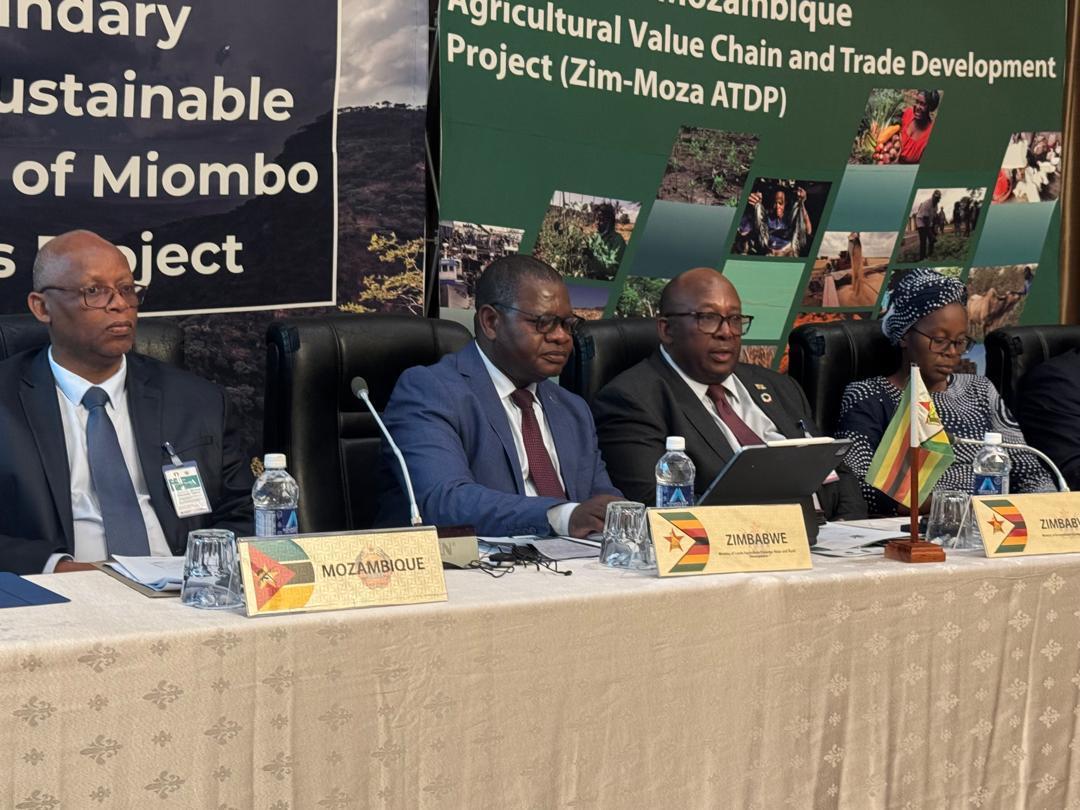Africa-Press – Mozambique. The Food and Agriculture Organisation (FAO) has launched two major projects in agriculture and conservation between Zimbabwe and Mozambique that are set to enhance climate resilience and sustainable livelihoods.
The two projects, Transboundary Integrated Sustainable Management of Miombo Woodlands, and the Agricultural Value Chain and Trade Development, are expected to unlock inclusive economic growth through structured cross-border trade.
The Projects are being funded by the Italian government.
Speaking at the launch, the Permanent Secretary for the Zimbabwean Ministry of Environment, Climate, and Wildlife, Ambassador Tedious Chifamba highlighted the impact of the two projects in creating economic opportunities, especially for rural communities.
“The Miombo woodlands are no longer seen solely as vulnerable ecosystems, but as climate assets, integral to national adaptation and mitigation efforts, and central to green economic recovery. The benefits of this project and our broader environmental reforms extend far beyond the Miombo. A healthy Miombo ecosystem underpins agricultural productivity, reduces rural poverty, and enhances resilience to climate shocks.
“It enables smallholder farmers to thrive, creates green jobs, and supports nature-based tourism making it a driver of inclusive green growth across the region. With vision, commitment, and collaboration, we believe the Miombo woodlands can once again flourish not just as forests of trees, but as forests of opportunity, resilience, and hope.”
The Permanent Secretary in Zimbabwe’s Ministry of Lands, Agriculture, Fisheries, Water and Rural Development, Professor Obert Jiri, emphasised the value of regional cooperation in strengthening agricultural trade.
“The agriculture value chain and trade development project will provide opportunities for smallholder farmers in both countries to participate in global value chains and enable the value chain actors, both public and private sector, to implement sound favourable trade policies. The project will enable the economic agents to capture concrete advantages of bilateral, regional and international trade facilitating frameworks, at a time that continental and regional integration is gaining momentum in the continent.”
Italian Ambassador to Zimbabwe, His Excellency Umberto Malnati and FAO Sub Regional Coordinator for Southern Africa, Dr Patrice Talla Takoukam reiterated their commitment to ensuring both countries achieve the set goals.
“Italy’s commitment in this region falls within the framework of the Mattei Plan for Africa, which promotes a renewed model of cooperation based on listening, mutual partnership, and enhancement of local potential. In this vision, Mozambique and Zimbabwe are strategic partners with whom we aim to build shared pathways for sustainable economic growth and human development,” His Excellency Malnati said.
“Both projects embody FAO integrated approach to agrifood systems, promoting sustainable production, enhancing nutrition, conserving natural resources, and improving livelihoods. To make this vision real FAO capitalises on its vast experience and its technical excellence,” Dr Takoukam said.
The Miombo woodlands in Zimbabwe are a crucial ecosystem that supports the livelihoods of millions of rural residents.
The first project, Agricultural Development and Trade ZIM-MOZA ATDP, focuses on strengthening agricultural trade between the two countries by improving market access for small producers, promoting agro-processing, and supporting micro, small, and medium enterprises, with particular attention to the inclusion of women and youth.
The second project (Sustainable Management of Forest Resources FAO-AICS Miombo) focuses on the sustainable management of the Miombo woodlands, one of the largest tropical dry forest ecosystems in Africa, which provides livelihoods to over 300 million people. Its protection is essential not only for biodiversity but also for food security, climate resilience, and the stability of local communities.
For More News And Analysis About Mozambique Follow Africa-Press






